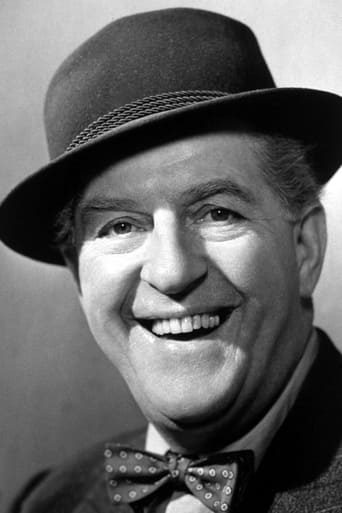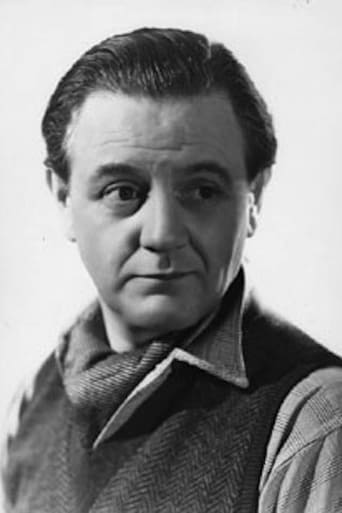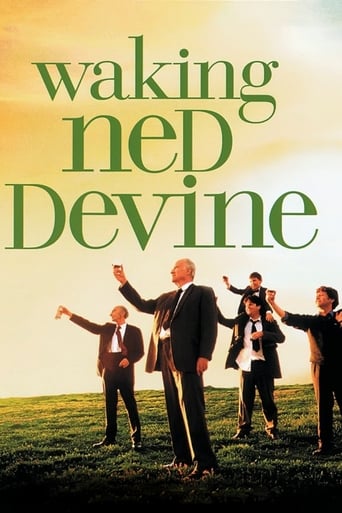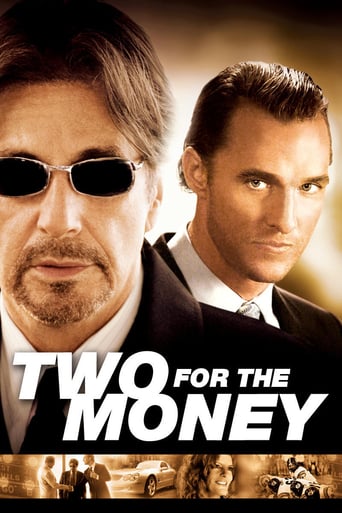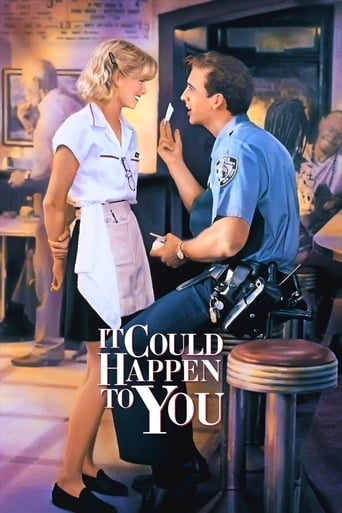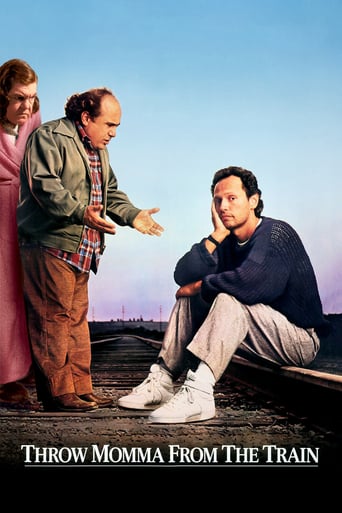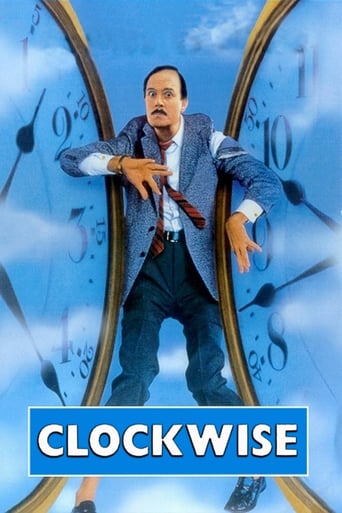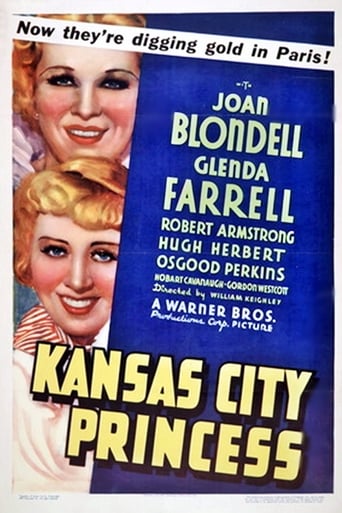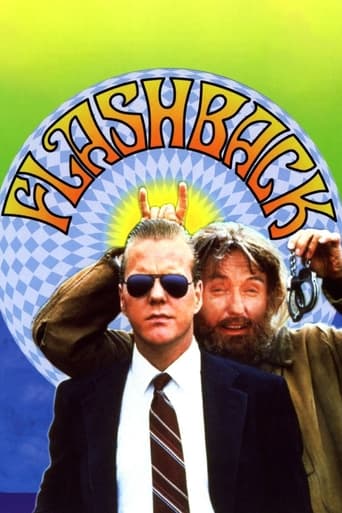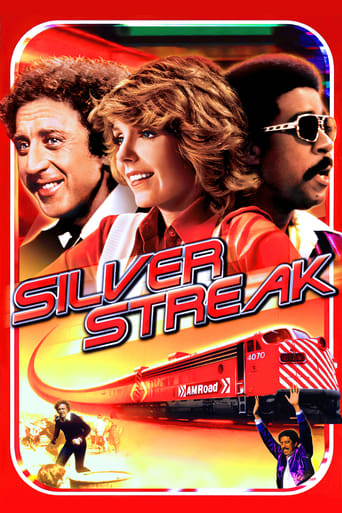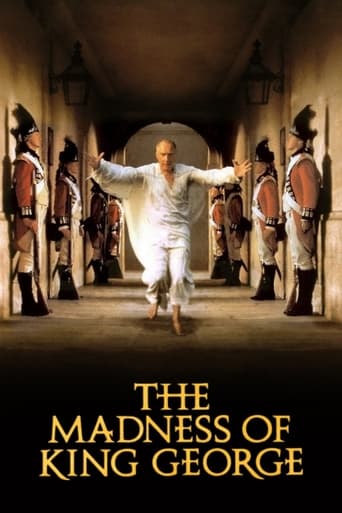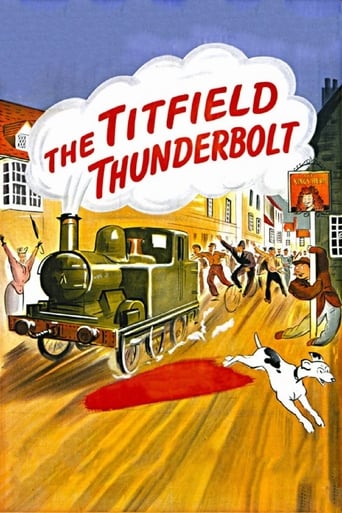
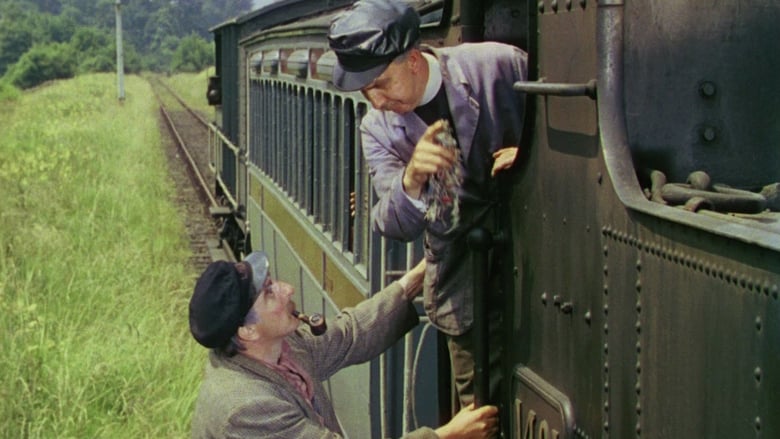
The Titfield Thunderbolt (1953)
When British Railways announce the closure of the Titfield to Mallingford branch line a group of local residents make a bid to run it themselves, backed by a monied member of the community who is attracted by the complete lack of licensing hours on trains. Unfortunately the local bus company starts to use methods that can hardly be seen as fair competition.
Watch Trailer
Cast


Similar titles
Reviews
As somebody who had not heard any of this before, it became a curious phenomenon to sit and watch a film and slowly have the realities begin to click into place.
Ok... Let's be honest. It cannot be the best movie but is quite enjoyable. The movie has the potential to develop a great plot for future movies
One of the most extraordinary films you will see this year. Take that as you want.
All of these films share one commonality, that being a kind of emotional center that humanizes a cast of monsters.
Not for the first time and probably not the last it seems that I've been watching a different film to the majority of people who have posted a review here. I recall seeing this film on TV when I was in my teens and being disappointed. Then I saw the DVD in a Charity Shop figured, what the hey, bought it, and checked the reviews here on IMDb. They painted such a glowing picture it convinced me I was mistaken so I put it in the DVD player with high hopes. Alas, seems I was right all along. For one thing, apart from Stanley Holloway Ealing is fielding very much a second or even third eleven and when you give pedestrian actors a pedestrian screenplay the result is ... yes, I can see you're ahead of me. John Gregson was as wooden as usual, so much so he could easily have doubled as one of the sleepers on the track. The females were unknown to me and presumably sunk without trace. All in all a waste of 84 minutes.
This delightful piece of 1950s English whimsy portrays not so much a time and place gone by as a time and place which perhaps never quite existed.Visually, it is a colourful picture of rural England at its most beautiful, forming a backdrop for a gentle story of "big" business trying to prevent the small village of Titfield from re-establishing its branch line.The story, which feels like nothing so much as several episodes from the earliest of the Thomas The Tank Engine books, though flimsy, nonetheless has sufficient charm to hold the interest throughout. The cast, drawn from England's finest post-war talent, is absolutely fine. The action is well directed (do watch out for the rubber engine during the night-time run through the streets of Titfield!) and the geography is always well conveyed.But, more than anything else, this is a film which could only ever have been made in England in the 1950s.
Before I begin, I wonder if anyone else noticed that the plot to this film is actually very, very similar to one of Harold Lloyd's films, SPEEDY. It, like the TITFIELD THUNDERBOLT, is about an older form of transportation that is supposed to be phased out in favor of the new, but people band together to keep their old line. In the case of SPEEDY, it was a trolley in New York in the late 1920s. Here, with the THUNDERBOLT, it's a train in a rural English town near the Welsh border (in the fictional town of Titfield which is supposedly near Bath). And, in both cases, the competition does its best to prevent the old line from fulfilling its obligation--thus putting the old company out of business. TITFIELD THUNDERBOLT is a bit different, as it's more of an ensemble film and the humor is a lot more subtle, but otherwise the films sure are similar.The film begins with an announcement that the old train line will be closed and replaced by the new bus service. However, the vicar and some of the other locals have a nostalgic love of the old service and approach the government to buy the line and run it themselves. However, again and again, the bus company does its best to make sure the train won't run on time and thus lose its contract. The final straw seems to be when the train is vandalized and made unusable on the night before the government inspector is due to inspect the railroad. What will they do--and why is the word 'Thunderbolt' in the film's title?! This is a nice gentle sort of film that hearkens back to bygone days--to an England that no longer exists. As such, the film is a great historical document and both entertains AND reminds us of our past. Additionally, a lovely ensemble cast, nice and leisurely direction and lovely color (a rarity in Ealing films) make for a memorable trip down memory lane.
A very curious beast, this. It contains many of the trademarks of other Ealing comedies - the little people facing oppressive civil servant types and capitalism, lightly fantastical moments, a sense of community spirit etc. - yet these elements fail to gel this time round. In fact it's probably the only Ealing comedy to really fall flat on its face.The plot concerns a small, out-of-date railway that is due to be closed down and the local community's attempts to keep it running in the face of monumental adversity. Part of the problem lies in the fact that it's difficult to empathise with the characters' plight; I'd imagine that whereas most people would like to get rich quick (The Lavender Hill Mob, for example), few have dreams of running their own railway. Also, the main characters want to keep the railway going purely out of a desire to uphold tradition, when alternative forms of transportation are far more efficient and a Hell of a lot safer. We're meant to be on the side of the vicar and his chums trying to run a railway on their own but one can't help but think that the bureaucracy are right on this occasion and that the heroes just aren't capable of carrying out this great task. Whilst the problems that beset them are admittedly the fault of an exterior menace - mainly a couple of lads who run a bus route (ooo, scary) - the "goodies" thwart their foes at every turn by... erm... ramming them off the track (nice), or tying the train to the engine by rope (thereby posing a massive safety risk to all the passengers).Then there's the bit where Sid James shoots holes in the water refill tank and they need to find a new source of water - the river holds the apparent solution, so the drivers bang on the windows of the train and order all the passengers out so that they can help them (!) by raiding the local farm (!!) for containers to carry water back and forth until the engine's filled. Though it says a lot about the community spirit, it's a bit unlikely that the passengers would be willing to expend physical labour on what was supposed to be a quiet journey that they themselves have paid money for (the one man who refuses to do it - saying quite rightly that he shouldn't have to - is painted as the black sheep!). It makes it difficult to believe that everybody should be so keen for the railway to continue when every journey they go on is fraught with safety hazards and delays; most people would sod it for a game of soldiers and get the bus instead. And by the time people are flocking to help push the train along the tracks (a replacement engine from the local museum, note, and therefore even deadlier than the one before) to get it past its government inspection you wonder whether these people should have something better to do with their lives than fret about maintaining what seems to be the most inefficient and dangerous train service that ever existed. In fact the one argument in their favour - that replacing the one train with loads of bus routes and motorways would have huge environmental concerns and destroy the countryside - is mentioned once and then forgotten about; it seems that we're supposed to support them simply because, well, they want to run a railway and it's quite a nice hobby. I know it's supposed to be whimsical and all that but I just couldn't help but think that these characters - with their hearts in the right places - were an utter menace.Of the cast only Stanley Holloway shines as a wonderfully eccentric chap mad enough to finance the affair so long as the train has a 24 hour bar inside, and there is a wonderful sequence with a train driving down the roads of a local town (one of those magical moments Ealing did so well), but the story doesn't have strong enough foundations and the pace drags awfully (its slim 80 minutes seem to last forever). Not even the old English charm can save it. Probably worth a single viewing but you probably won't go back to it in a hurry.


